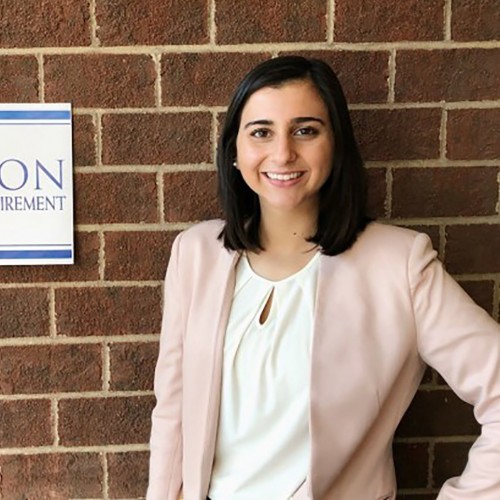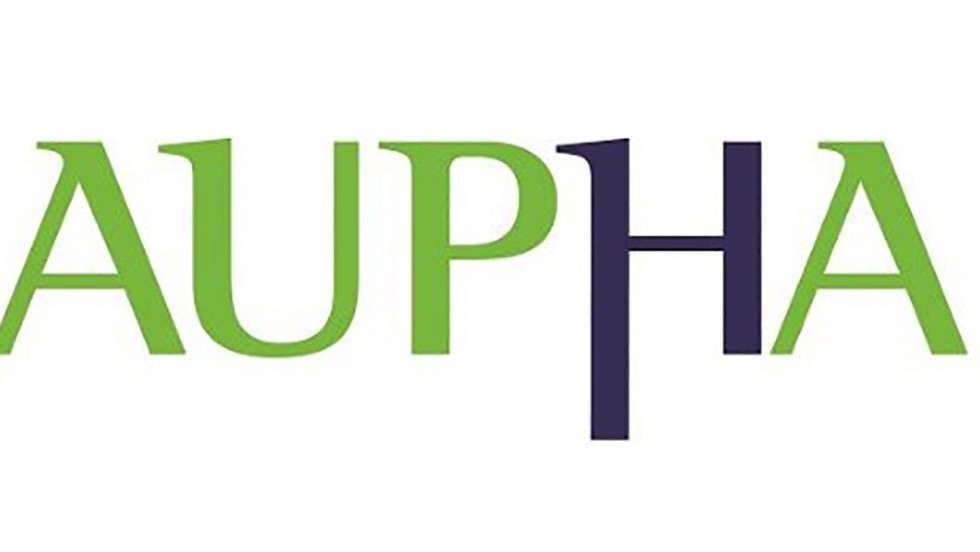Compassion Leads Healthcare Administration Students to Success
Our healthcare administration majors are driven by the desire to help others and supported by a program that’s the only one in the state fully certified by the Association of University Programs in Health Administration.
Editor’s note: This story references Stonehill’s Healthcare Administration Program, which is now the Healthcare Management program.
Abby Hersom ’18 is not unlike other Stonehill healthcare administration majors when she says she’s invested in improving the lives of patients in the healthcare industry and will “never accept complacency.”
“I am determined to courageously improve an industry that is notorious for high costs and poor patient satisfaction,” said Abby. “By constantly looking for innovative, cost-effective, patient-centered solutions, we are making progress toward a more just and compassionate world.”
That determination was solidified during an internship Abby secured through Stonehill’s Healthcare Supply Chain Management Initiative. Through the program, she spent summer 2016 at LeeSar, a company based in Fort Myers, Florida, that provides medical supplies and custom surgical packs to member hospitals. The experience helped her recognize the importance of improving patient outcomes and setting the regulations to do just that.
“The personal connection and investment into improving strangers’ lives is difficult to replicate in other industries,” said Abby, who was named Stonehill's 2018 healthcare administration Outstanding Scholar and St. Thomas Aquinas Medalist. “The [experience] created a new passion and excitement to be in the healthcare industry. I was also able to see the finance, distribution and pharmaceutical sides of the industry. I would have never been exposed to one of the fundamental components of operating a successful hospital without the internship.”
After graduation, Abby will start work as an administrative assistant II for the neurosurgery department at Brigham and Women’s Hospital in Boston.
Grounded in Business and Liberal Arts and Evolving to Meet Market Demands
The healthcare industry has continued to expand and evolve in the 40 years since the healthcare administration major was established at Stonehill. At first, most students went into hospital management or long-term care management. Now, students can select electives and pursue a range of specialties, including:
- Health IT
- Population health management
- Consulting
- Gerontology
- Public and private sector insurance
- Group practice management
- Finance, personnel, marketing, public relations and sales
Stonehill’s Healthcare Administration Department is also now part of the Leo J. Meehan School of Business, giving students a firm understanding of business supplemented by solid grounding in the liberal arts. This foundation allows them to develop the confidence and critical thinking skills they need to succeed in their field.
“Students need technical and leadership skills,” said Professor Mitchell Glavin, department chair. “Yet, when we’re talking about making crucial choices about how we develop systems and how we coordinate them, you also have to have the ability to think about the humanistic aspect as well. Our graduates have both when they go forward.”
Stonehill's is the only undergraduate program in Massachusetts fully certified by the Association of University Programs in Health Administration.
Prestigious Certification Reflects Rigor of Curriculum, Internship Program
Stonehill’s healthcare administration program is certified by the Association of University Programs in Health Administration (AUPHA), which only certifies programs with high academic standards. Stonehill’s is one of only 43 programs certified in the country, and it is the only certified program in Massachusetts.
“It’s a way of constantly revalidating the program as current and being sure it’s providing the tools and skills the field requires,” said Glavin, adding that 95 percent of students in the healthcare administration Class of 2017 were employed or enrolled in graduate school six months after graduation.
AUPHA’s certification body requires Stonehill’s curriculum to include a mandatory 400-hour internship for credit. This equates to a full-time internship during the summer months, but professors suggest students complete more than one internship, if possible.
“Our typical graduate has done two internships and volunteered a couple of places,” said Glavin. “They’ve got all the coursework behind them, and they’ve got a couple of professional placements, including references. That’s why our placement rate is extremely high.”
Graduates of the program say this internship experience sets them apart when applying to their first job.
“The internship required evaluation and reporting on my end,” said Kayana Jones ’15, of Wareham, Massachusetts. “It was not only an introduction to the industry, but a jump-start to my career and a huge opportunity for personal development.”
Kayana now keeps up with industry trends, laws and regulations as she travels the country as a clinical applications specialist for MEDITECH, a healthcare software and service company.
The internship also encourages students to develop new skills before graduation.
“I am trying to be more outspoken and advocate for what will be valuable for others,” said Rebecca Joseph ’18, a first-generation college student from Boston. “My internship [at the Institute for Family Health in Manhattan] encouraged me to be a team player, share my ideas and learn from others.”
Stonehill Experience Leads Alums Down Path of Service
Graduates of Stonehill’s healthcare administration program see success not only in their career but also in living a life of purpose that has a positive impact in the community.

“I like [that] I’m making a difference,” Laura Ebraico ’18, of North Attleboro, Massachusetts, said of her career. Her experience interning at Life Care Centers of America in Attleboro, Massachusetts, guided her to her current position in human resources at SALMON Health & Retirement. “I took care of people’s loved ones by hiring the most qualified people for the job. I kept everyone in the facility safe by making sure that everything was up to state standards.”
Stonehill’s healthcare administration majors become advocates in the healthcare industry and live Stonehill’s mission to “think, act and lead with courage toward the creation of a more just and compassionate world.”
“The program is entirely consistent with Stonehill’s mission,” said Glavin. “We’re dealing with some tough problems. We need people who are very active, engaged and thoughtful pushing hard to make the change that we want to see happen.”
